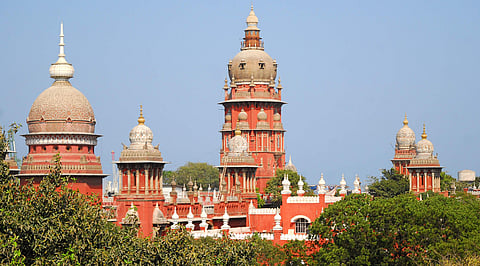

CHENNAI: The Madras High Court has held that a Muslim woman has the right to unilaterally dissolve her marriage through ‘khula’ under the Muslim Personal Law, but such divorce can only be granted by a family court.
“While it is open for a Muslim woman to exercise her inalienable rights to dissolve the marriage by khula recognized under the Muslim Personal Law (Shariat) Application Act, 1937, by approaching a family court, it cannot be before a self declared body consisting of few members of Jamath,” said Justice C Saravanan in a recent order.
He quashed a khula certificate issued to Sayeedha Begum in 2017 by a Shariat Council. The order was passed on a petition filed by the woman’s separated husband Mohammed Rafi seeking quashing of the certificate.
He argued that extra judicial decrees such as fatwa or khula certificate have no legal sanction and cannot be enforced by any private person or bodies. However, the Shariat Council argued that in light of the Kerala High Court judgment on a related matter, the present writ petition was not maintainable.
The court negated the argument saying the Kerala High Court judgment only upheld the Muslim woman’s right for unilateral divorce through khula, but did not endorse the involvement of private bodies like the Shariat Council.
“The private bodies such as the Shariat Council, the second respondent herein, cannot pronounce or certify dissolution of marriage by Khula. They are not courts or arbitrators of disputes. The courts have also frowned upon such practice as mentioned above,” it said. While quashing the khula certificate, the court directed the couple to approach the Tamil Nadu Legal Services Authority or a family court to resolve their disputes.
“The Courts are empowered under Section 7(1)(b) of the Family Courts Act, 1984 read with Section 2 of the Dissolution of Muslim Marriages Act, 1939 and Section 2 of the Muslim Personal Law (Shariat) Application Act, 1937 to pass a decree to dissolve a marriage, the court further stated.